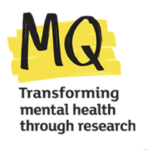Self-harm is not usually an attempt at taking our own life, but a way of expressing deep emotional feelings, such as low self-esteem. It is also a way to cope with traumatic events or situations, such as the death of a loved one, or an abusive relationship. Self-harm is not an illness, it is an expression of personal distress.
In adults with major depression, antidepressants may increase the risk of suicide

Douglas Badenoch explores a meta-analysis of follow-up data from clinical trials of antidepressants, which found a small but significant increase in suicide risk.
[read the full story...]








